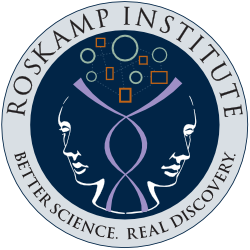Very unfortunately, today Biogen announced that it’s late-stage clinical trials for Alzheimer’s Disease using the drug Aducanumab have failed. Aducanumab was designed to target one of the main pathologies in Alzheimer’s Disease, namely, amyloid accumulation. Scientists have known for years that accumulation of amyloid (a small protein produced by neurons) is a hallmark of the disease and many believed it was causative. Many drugs aimed at reducing amyloid levels have failed in late-stage clinical trials.
Researchers at the Roskamp Institute have been targeting alternative molecules that not only reduce amyloid but also reduce other features of the disease, such as tau and inflammation. These alternative approaches may prove more effective than simply targeting amyloid (or tau) alone.
Biogen’s drug was particularly efficient at specifically reducing amyloid accumulation in the brain. Sadly, this latest failure adds to the previous failures of drugs that only target amyloid and it adds to the growing consensus that reducing amyloid alone is not an effective way to slow the disease. After decades of research on targeting only amyloid, these new findings will likely provoke Alzheimer’s researchers to look for other molecules to target the disease.
Even though the Biogen study failed we will undoubtedly learn a huge amount about how better to design drugs for Alzheimer’s. The continued participation of patients and their families make these advances possible.

